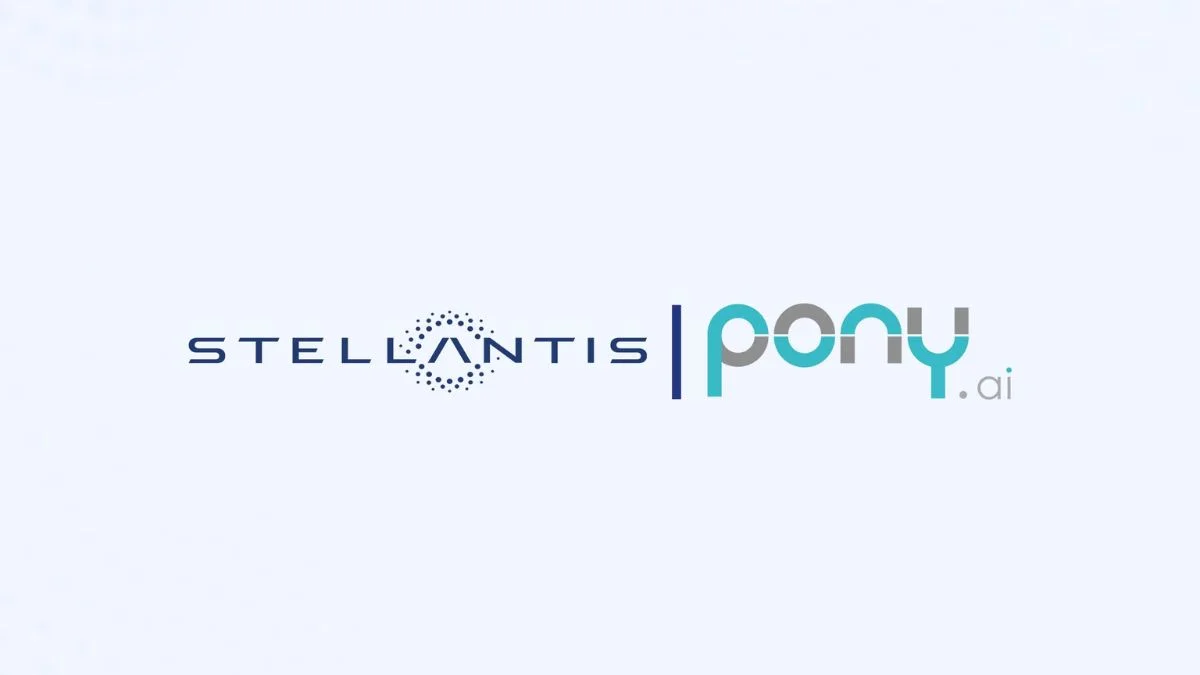Necessary Always Active
Necessary cookies are required to enable the basic features of this site, such as providing secure log-in or adjusting your consent preferences. These cookies do not store any personally identifiable data.
|
||||||
|
||||||
|
||||||
|

In Focus
Stellantis is partnering with Chinese self-driving company Pony.ai to accelerate development and deployment of autonomous vehicles in Europe. According to Reuters, the Stellantis Pony.ai robotaxi Europe partnership will combine tech solutions developed by the two companies to deliver safe, efficient, and scalable urban mobility solutions.
The Pony.ai Stellantis partnership has been developed through Pony.ai’s European division which is headquartered in Luxembourg. Under the partnership, the Chinese company will provide autonomous driving software, Pony.ai Gen-7 robotaxi tech.
Stellantis, which owns leading brands including Citroën, Jeep, and Chrysler, will provide EV vehicles. Pony.ai’s advanced self-driving software will be integrated with Stellantis’ battery-electric medium-size van AV-Ready Platform designed for hands-off, eyes-off driving.
“Driverless vehicles have the potential to transform the way people move in our cities, offering safer and more affordable options for communities. To bring this vision to life, we’ve built Stellantis’ AV-Ready Platforms and are partnering with the best players in the industry. Pony.ai stands out for their technical expertise and collaborative approach,” Stellantis Chief Engineering and Technology Officer Ned Curic said.
Stellantis’ AV-Ready Platform is designed to support fully autonomous (Level 4) driving capabilities. Its updates include backup systems and advanced sensors that allow it to work with self-driving software in a way that meets top safety and reliability standards for hands-free, eyes-off use.
Pony.ai is listed in the U.S. The Chinese robotaxi startup raised $260 million in an IPO last year, pushing its valuation to about $4.55 billion.
The two companies plan to deploy test vehicles in Luxembourg in the coming months with gradual rollouts across European cities expected at the beginning of 2026. The tests will be based on the Peugeot e-Traveller model.
Real-world testing of European robotaxi trials by Pony.ai and Stellantis will focus on validating:
Initially, the partnership between Stellantis and Pony.ai will focus on light commercial vehicles (LCVs). Stellantis leads in this segment in Europe through Pro One. The company’s wide LCV portfolio allows for seamless scaling of solutions customized for the diverse mobility landscape in Europe.
Stellantis LCVs are ideal for scaling autonomous driving applications due to their size, ownership cost, efficiency, and flexibility.
“We are delighted to partner with Stellantis to bring our autonomous mobility technology to Europe. Their strong European presence and portfolio of iconic brands make them the ideal partner to help accelerate our growth in this key market,” Pony.ai CEO and Founder, Dr. James Peng said.
A Sneak Preview of the Stellantis Pony.ai Robotaxi Partnership:
Although the collaboration between the two companies revolves around LCVs, it paves the way for broader application across mobility services for people and products. Established robotaxi companies like Waymo are already exploring ways to widen utilization of their autonomous driving technology.
Waymo has partnered with DoorDash to dispatch food and grocery orders. The two companies will run trials in Phoenix where the robotaxi delivery service will serve the 315 square miles covered by Waymo.
Top cities in the U.S. and China have led the world into allowing autonomous vehicle companies to operate robotaxis. Recently, robotaxi companies have ramped up efforts to expand ride-hailing services to Europe and the Middle East.
Pony.ai and Stellantis are partnering to bring robotaxis to Europe at a time when Waymo has announced plans to launch robotaxis in London, U.K. starting 2026.